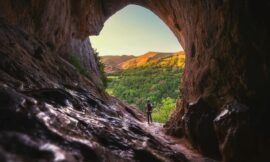Embarking on a hiking adventure can be a thrilling and rejuvenating experience, connecting you with the raw beauty of nature. However, the wilderness can be unpredictable, and even the most seasoned hikers can find themselves in challenging situations. Being prepared with essential survival skills is crucial for any hiker, ensuring a safe and enjoyable journey. In this article, we will explore key survival skills that every hiker should know, from navigation to emergency shelter building, to help you be prepared for anything.
Navigating the Great Outdoors
The art of navigation is a fundamental skill for any hiker. In the age of GPS and smartphones, many of us rely heavily on technology for direction. However, these devices can fail in remote areas or when batteries die. Understanding how to use a map and compass is invaluable. When planning your hike, always carry a detailed topographic map of the area and a compass. Familiarize yourself with the terrain features, such as rivers, peaks, and valleys, which can serve as natural guides.
Importance of Water and Food
Water is life, especially in a survival situation. Knowing how to locate and purify water is essential. Streams, rivers, and lakes are obvious sources, but you can also collect rainwater or dew. Always purify water from wild sources before drinking to avoid waterborne diseases. Boiling is the most effective method, but chemical purifiers and filters are also reliable.
Food might not be as immediate a concern as water, but knowing how to find sustenance can be a lifesaver in prolonged situations. Edible plants, nuts, and berries can be found in many environments. However, it’s crucial to know which are safe to eat. A guidebook on local flora can be a valuable resource. In some situations, you might need to rely on fishing or trapping small animals, skills worth learning for long-term survival.
Building an Emergency Shelter
Shelter is your first line of defense against the elements. In a survival situation, your ability to build an emergency shelter can mean the difference between comfort and hypothermia. The simplest shelters, like a lean-to or a debris hut, can be constructed with materials found in the wilderness such as branches, leaves, and moss. Always choose a location away from hazards, and consider insulation and wind direction.
Fire Starting Techniques
A fire is not just a source of warmth; it can be used for cooking, purifying water, signaling for help, and providing psychological comfort. Carrying a reliable fire starter, such as a lighter or matches in a waterproof container, is a must. Also, learn how to start a fire using natural materials and methods like a bow drill or flint and steel. Gathering the right kind of tinder, kindling, and fuel wood is crucial for maintaining a fire.
First Aid and Dealing with Emergencies
Basic first aid knowledge can be a lifesaver in the wilderness. It’s important to carry a first aid kit tailored to your trip and know how to use its contents. Understanding how to treat common injuries, like cuts, sprains, and burns, is essential. In addition, learn the symptoms and treatment of potential wilderness-specific health issues like hypothermia, heatstroke, and dehydration.
Signal for Help
In an emergency, you need to know how to signal for help. Three of anything (blasts on a whistle, fires, piles of rocks, etc.) is an internationally recognized distress signal. Carrying a whistle, a mirror for signaling, and a bright piece of fabric can aid in rescue. Familiarize yourself with the emergency procedures of the area you are hiking in and always let someone know your itinerary before you set off.
Being prepared with these survival skills
While we hope never to face a dire situation while hiking, being prepared with these survival skills can make all the difference. Prioritize learning and practicing these skills, as they not only equip you for emergencies but also enhance your overall hiking experience. Remember, the key to a successful hike is not just reaching your destination but ensuring a safe return. By being prepared, informed, and respectful of nature’s power, you can enjoy the beauty and challenges of the great outdoors with confidence and security.




